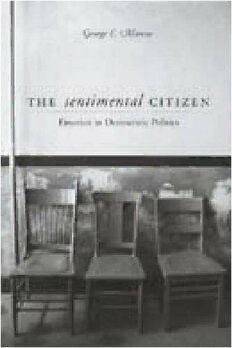
The Sentimental Citizen: Emotion in Democratic Politics PDF
180 Pages·2002·9.099 MB·English
Most books are stored in the elastic cloud where traffic is expensive. For this reason, we have a limit on daily download.
Preview The Sentimental Citizen: Emotion in Democratic Politics
Description:
George Marcus deserves thanks and praise for reminding us that emotional communication and arousal are the life-blood of politics. Leaders who ignore the primacy of voters?’ feelings are doomed to failure. Voters and political scientists who imagine that politics is a question of purely ?‘rational choice?’ are bound to be astonished by what actually happens. To gain a better understanding of how our emotions shape contemporary politics, this volume is must reading. ?—Roger D. Masters, Dartmouth College This book challenges the conventional wisdom that improving democratic politics requires keeping emotion out of it. Marcus advances the provocative claim that the tradition in democratic theory of treating emotion and reason as hostile opposites is misguided and leads contemporary theorists to misdiagnose the current state of American democracy. Instead of viewing the presence of emotion in politics as a failure of rationality and therefore as a failure of citizenship, Marcus argues, democratic theorists need to understand that emotions are in fact a prerequisite for the exercise of reason and thus essential for rational democratic deliberation and political judgment. Attempts to purge emotion from public life not only are destined to fail, but ultimately would rob democracies of a key source of revitalization and change. Drawing on recent research in neuroscience, Marcus shows how emotion functions generally and what role it plays in politics. In contrast to the traditional view of emotion as a form of agitation associated with belief, neuroscience reveals it to be generated by brain systems that operate largely outside of awareness. Two of these systems, "disposition" and "surveillance," are especially important in enabling emotions to produce habits, which often serve a positive function in democratic societies. But anxiety, also a preconscious emotion, is crucial to democratic politics as well because it can inhibit or disable habits and thus clear a space for the conscious use of reason and deliberation. If we acknowledge how emotion facilitates reason and is "cooperatively entangled" with it. Marcus concludes, then we should recognize sentimental citizens as the only citizens really capable of exercising political judgment and of putting their decisions into action.
See more
The list of books you might like
Most books are stored in the elastic cloud where traffic is expensive. For this reason, we have a limit on daily download.
